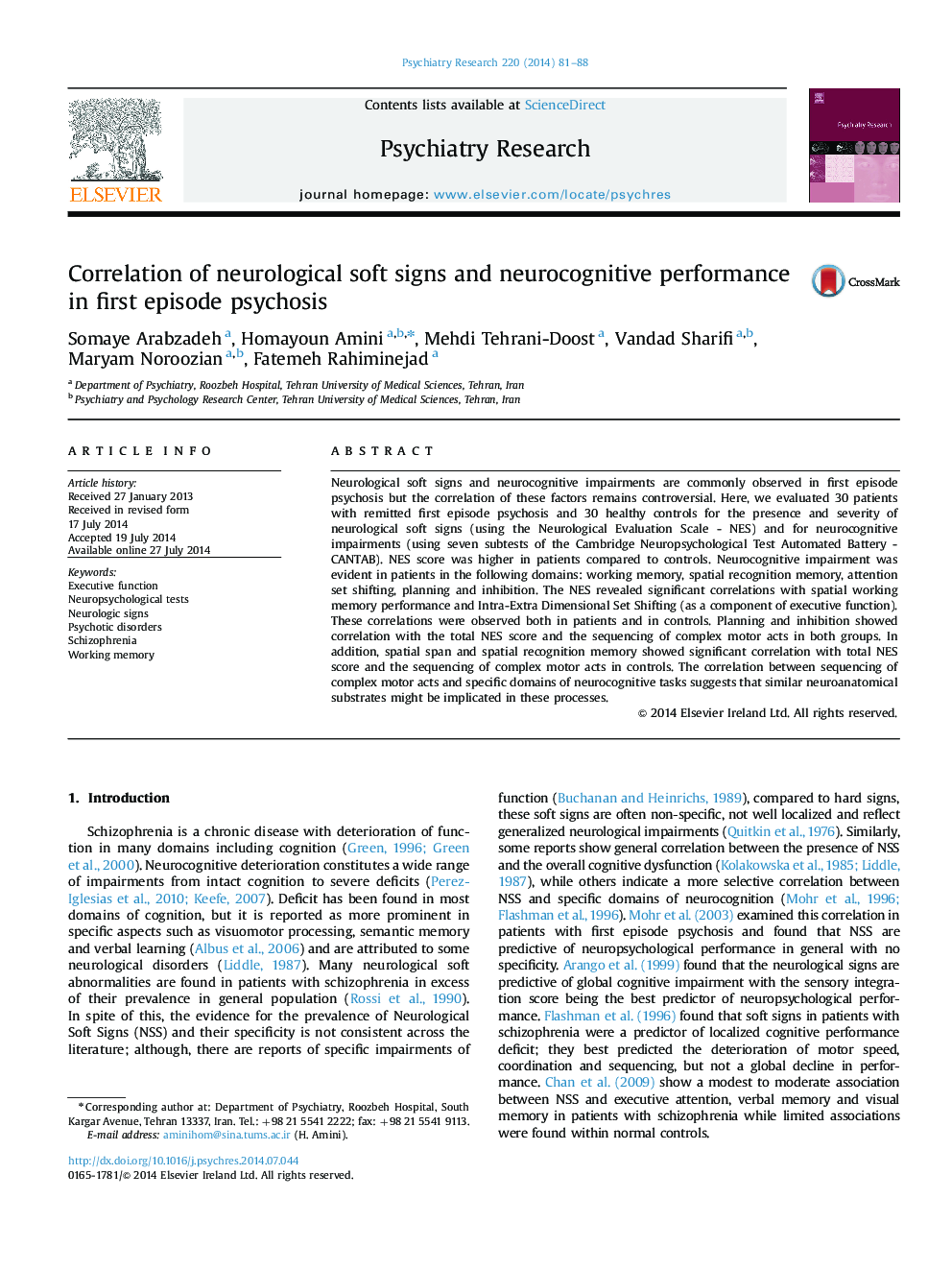| Article ID | Journal | Published Year | Pages | File Type |
|---|---|---|---|---|
| 6814639 | Psychiatry Research | 2014 | 8 Pages |
Abstract
Neurological soft signs and neurocognitive impairments are commonly observed in first episode psychosis but the correlation of these factors remains controversial. Here, we evaluated 30 patients with remitted first episode psychosis and 30 healthy controls for the presence and severity of neurological soft signs (using the Neurological Evaluation Scale - NES) and for neurocognitive impairments (using seven subtests of the Cambridge Neuropsychological Test Automated Battery - CANTAB). NES score was higher in patients compared to controls. Neurocognitive impairment was evident in patients in the following domains: working memory, spatial recognition memory, attention set shifting, planning and inhibition. The NES revealed significant correlations with spatial working memory performance and Intra-Extra Dimensional Set Shifting (as a component of executive function). These correlations were observed both in patients and in controls. Planning and inhibition showed correlation with the total NES score and the sequencing of complex motor acts in both groups. In addition, spatial span and spatial recognition memory showed significant correlation with total NES score and the sequencing of complex motor acts in controls. The correlation between sequencing of complex motor acts and specific domains of neurocognitive tasks suggests that similar neuroanatomical substrates might be implicated in these processes.
Keywords
Related Topics
Life Sciences
Neuroscience
Biological Psychiatry
Authors
Somaye Arabzadeh, Homayoun Amini, Mehdi Tehrani-Doost, Vandad Sharifi, Maryam Noroozian, Fatemeh Rahiminejad,
